There are numerous factors driving the stock market down. Here are a few important ones:
1. Debt overhang: We have issued far more debt than we can pay back. This is being used, among other things, to reengineer fundamental laws, governance and rights globally. The debt overhang and the governmental changes it is being used to engineer (financial coup d’etat) are bad for stock markets and broad-based private property rights.
2. Absence of good pricing data: Large financial institutions have no way of accurately pricing outstanding risk of a significant amount of complex instruments. Among others things, history is proving that they cannot trust the chain of trust: bankers, auditors, lawyers. As a result, their ability to transact and loan to each other freezes. In one sense, think of this as the price of the absence of integrity within the system.
3. Economic warfare: We are experiencing the first planetary “pump and dump” — we are now in the dump phase. The largest or craftiest financial institutions with access to and control of sovereign government intelligence and resources are able to subsidize themselves and gain market share and control of tangible assets by driving down shares of other financial institutions and companies.
4. Individual investors are leaving the party: Remember when your parents would not allow you to go to a party that did not have adult supervision? Given the refusal of the government to use enforcement powers to enforce the laws or to protect market integrity, the stock market lacks the equivalent of adult supervision.
5. Corruption tax: Centralization and corruption are expensive for everyone but the insiders … and the number of insiders is shrinking.
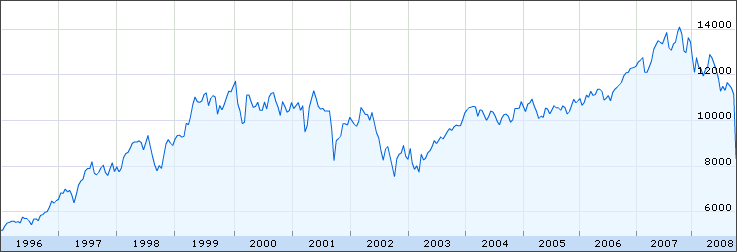




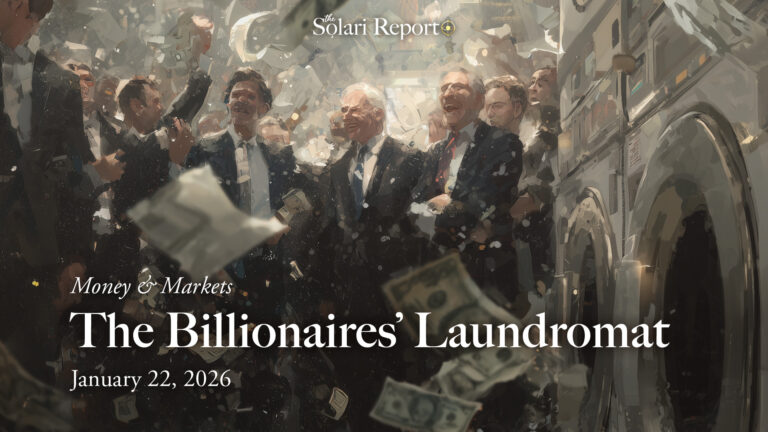


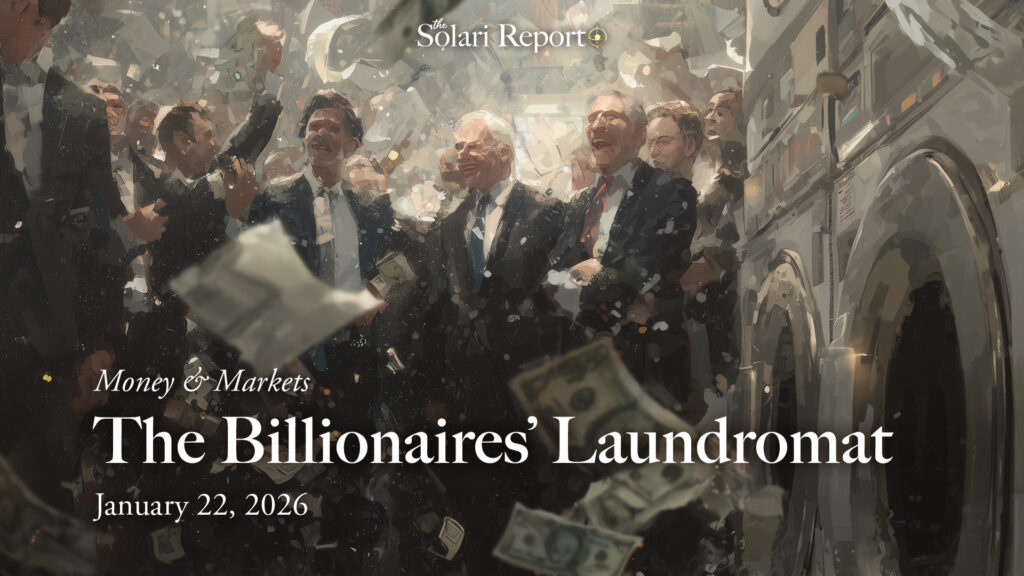
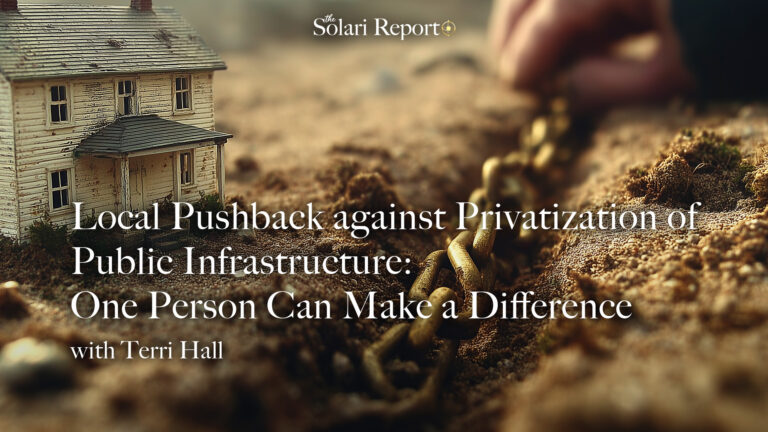
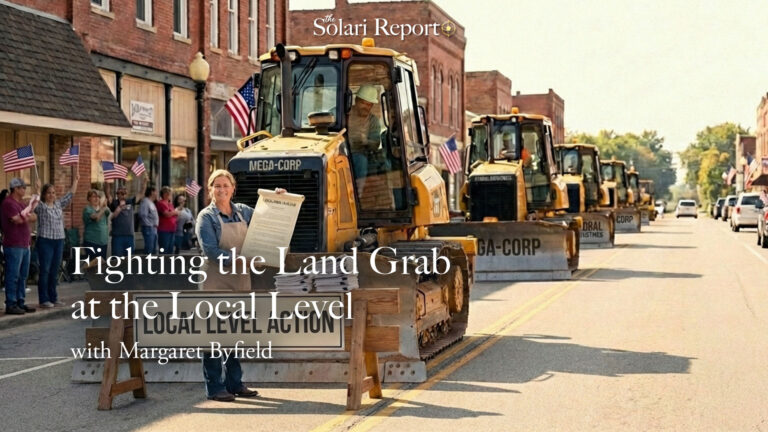
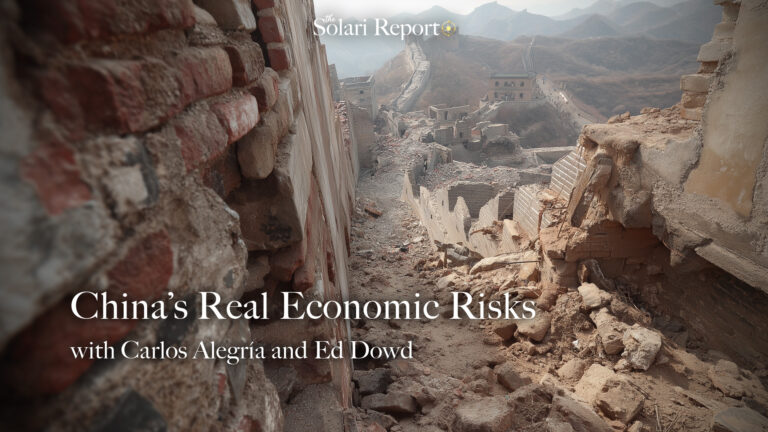
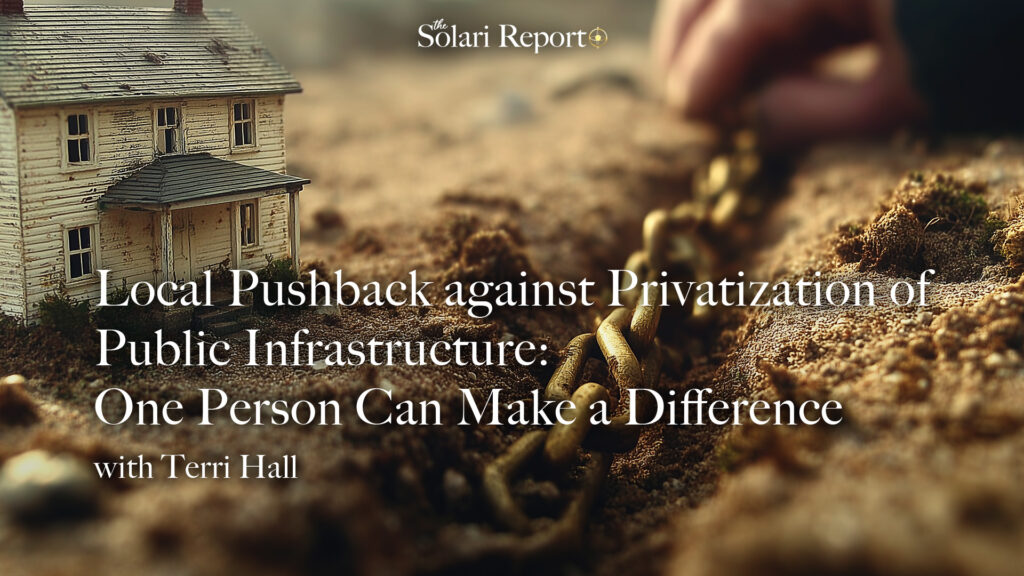
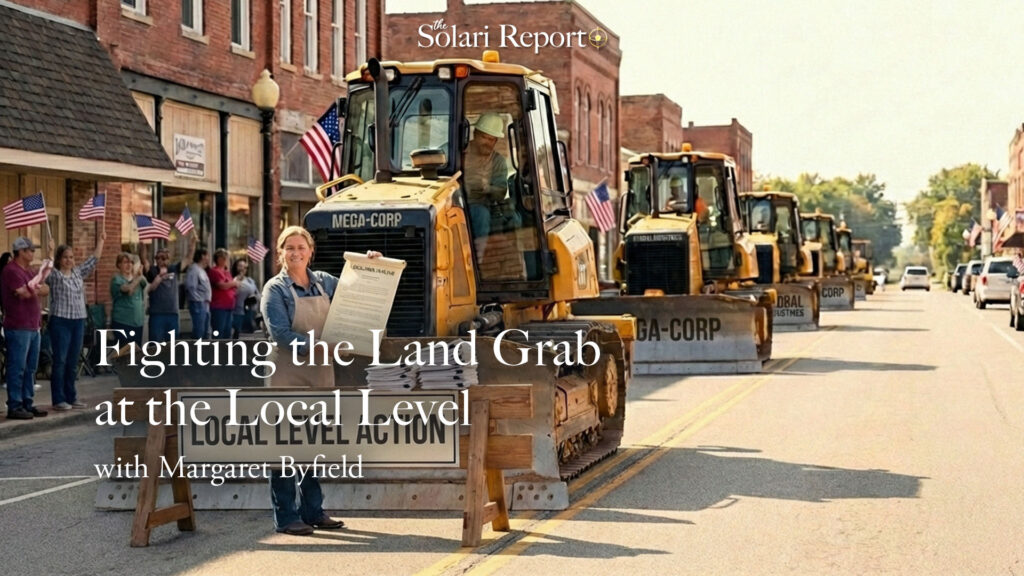
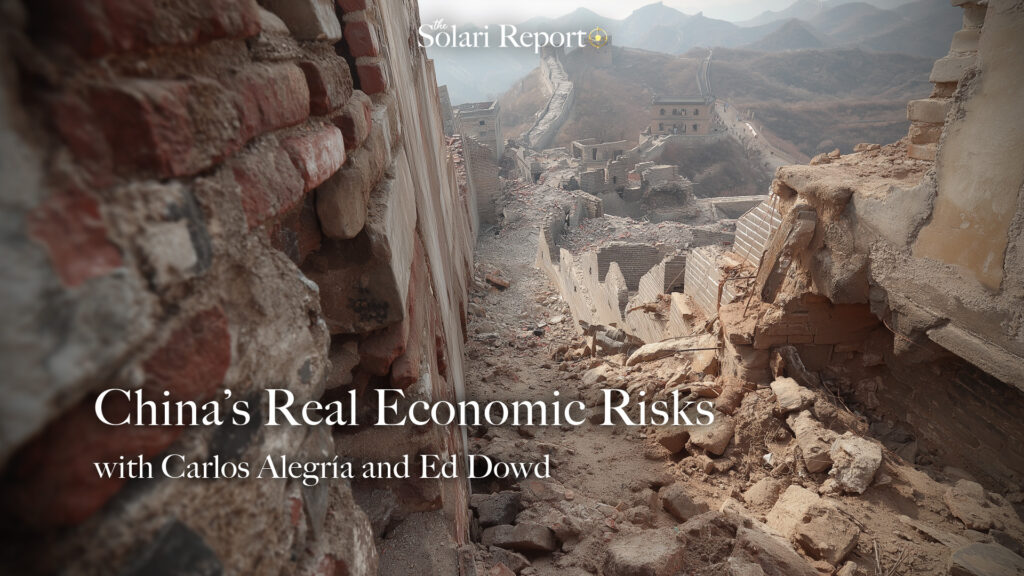


























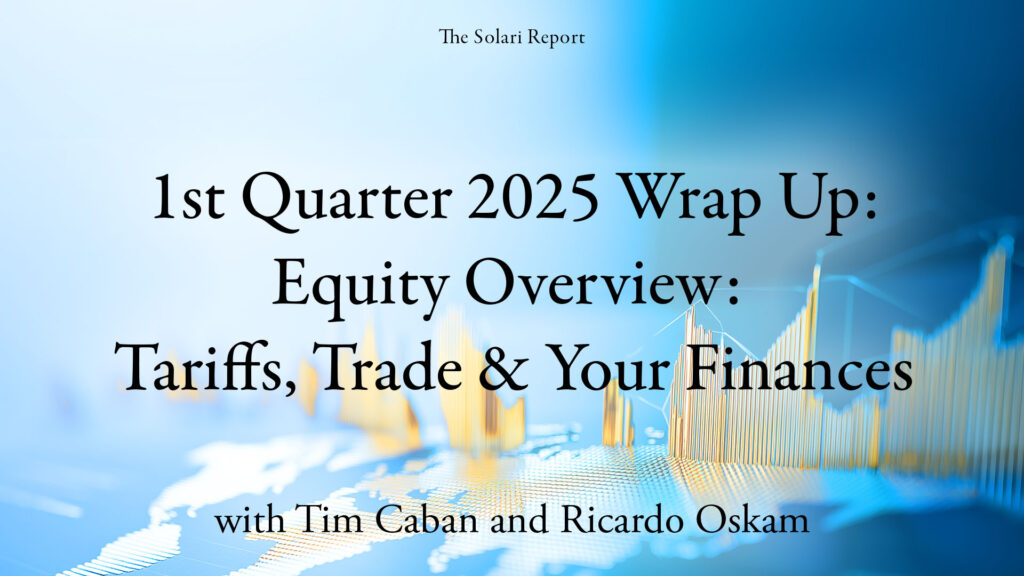
















































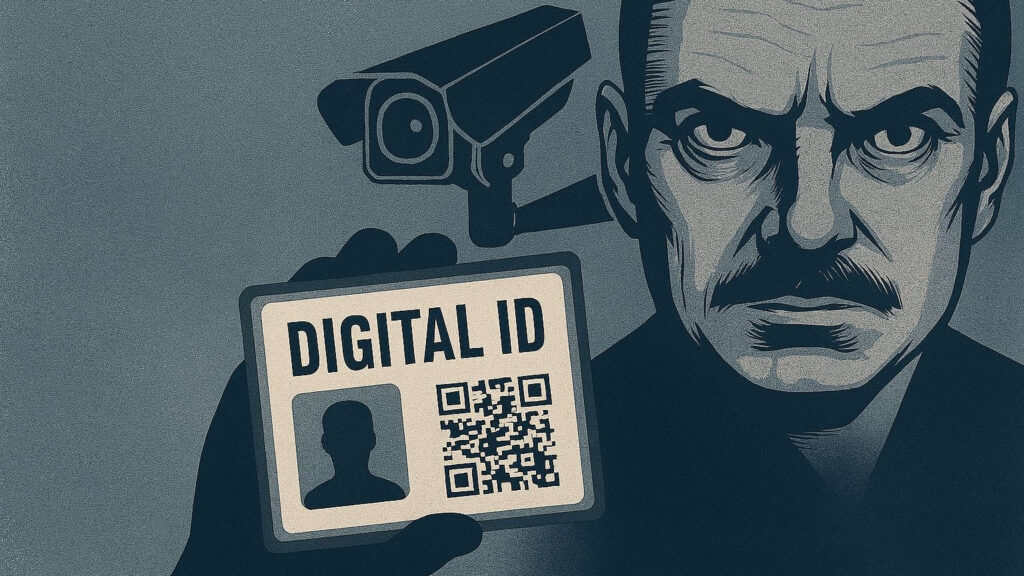







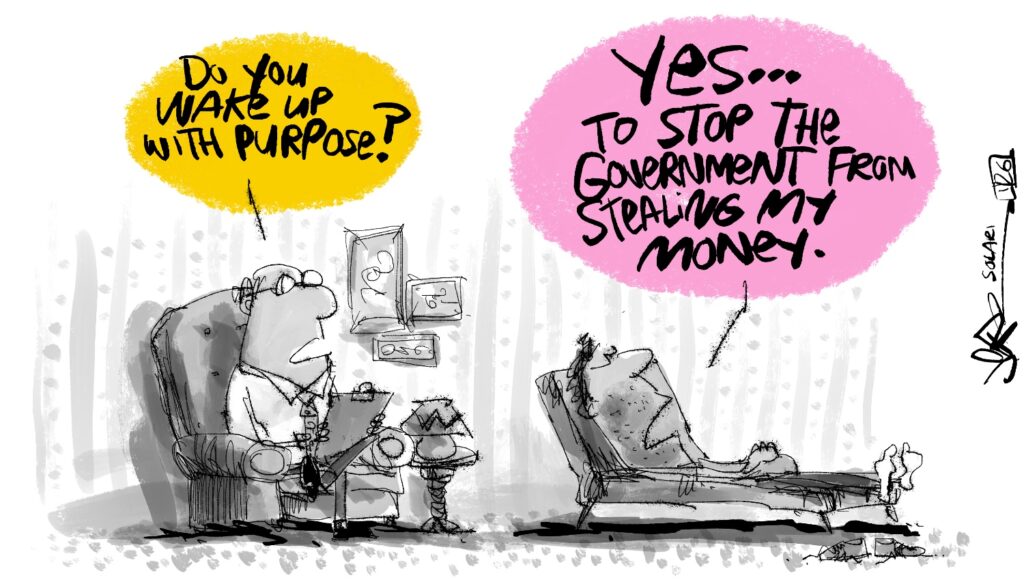





















Catherine,
I re-read your story and was struck by the prison segment. One of the public policy discussions which it seems a majority of Americans support is border control, yet we have achieved nothing in that direction. Could it be that illegal immigrants are just more for the bed count?
If you look at the War on Poverty, War on Drugs and the War on Terror as profit centers, Prisons would be a sub-profit center to War on Drugs.. correct?
Building a reasonable wall or system to protect the border would stop some of the people who end up in our prisons.
If drugs were de-criminalized, it would drop the drug profits. What kind of humane economic solution is there for immigration? There is so much danger for illegal immigrants who can be enslaved or imprisoned. By decriminaliziing unauthorized entry into the country, yet having a solid enforcement policy about employment, people could be here, but they would have to survive on an underground economy. Removing the fear factor would make them more competitive in that economy and less vulnerable to manipulation.
I’m not suggesting a two-tier system, but one that deals with the reality of where we are. It would get rid of coyotes and enslavement. Money would not be wasted on enforcement and prisons.
The last chapter of your story divulging the ethics of people that you knew and those you influenced leads me to tell you that there are extremely ethical people in unethical networks and when they speak up and have the backing, can change the order.
We have such a long way to go. First we have to take the blinders off the people so that they can understand that bi-partisan politics is just a distraction to the real shadow government.
I consider you my mentor and I continually spread your advice and story since I learned about you about a month ago.
m.
Catherine,
After steering this person to your writings, he replied:
I’ve read excerpts of her writings, which are as detailed and insightful as any you’ll ever read regarding the symbiotic relationship between our government, “mainstream” economy, and crime (and virtually all that it entails, including covert “nation building”… or destroying depending upon how you look at it)
Allow me to provide a narrow example. One of my best friends is a Federal Drug Enforcement agent. He did a tour in one of the most dangerous countries in the world, XXXXXX . He was there for X years.
His primary job while there was to raid the Columbian forests of cocaine farms and labs. They’d get “tips”, and then they’d be given the “green light” to go in, flying low over the canopy by helicopter, and to do “jumps” so as to seize these properties, drugs, etc. (but very rarely people).
In doing so over the years, my friend always told me that it was far more dangerous being off-duty in the cities than it was doing “drops” into the jungle. Occasionally, a jumper would get hung up in the canopy, but I think in eight years their choppers were shot at once. Moreover, “every single time” they seized a farm or lab it was clear that the occupants “knew they were coming”. On many occasions, while flying through the jungles they’d discover camps or farms that were occupied – where they could actually make arrests. However, they were not allowed to raid these camps, without “proper authorization”.
At first my friend was terribly frustrated by this, but it didn’t take him long to realize that much of this exercise was “choreographed” by the Columbian government and our own, which if looked at from the perspective of someone such as Fitts makes perfect sense (as well as anyone with half a brain).
While my friend’s job remained very dangerous, it was in essence a public relations job as much as anything else, designed to give the appearance of a “war on drugs”. They could have seized more property and made more arrests, but they were not allowed to.
This is a simple, but perfect example of how it works. Not just in South America, where it’s as rampant as anywhere in the world, but virtually everywhere – and represents a critically huge part of our global economy – as many well known American corporate brands benefit directly from the drug trade, by laundering their moneys.
Think about it, remember when the war on drugs was being described as the “scourge of America ” and out nation’s biggest problem. Well, it hasn’t gone away. In fact, it’s gone relatively unchanged. We’ll circle back as the media will jump on it a bit, they’ll be a hearing on Capitol Hill, then we’ll legislate and throw some money at it with a press conference to follow – to re-convince everyone that there is, indeed, a “war on drugs” – and then we’ll all forget about it again.
Interestingly, up to this point we’ve done little to undermine the Heroine trade in our ‘war’ in Afghanistan, which represents more than 50% of the Afghan economy – and the lifeblood of the Taliban, and to a lesser extent Al Qaida. Wonder why that is?”
I met a man who was in the military and refused a mission because he was expected to kill people who were disrupting the drug trade. He was thrown in the brig and discharged. He refused to murder innocents. He told them that he signed on to protect the Constitution and this was not protecting the Constitution.
Catherine,
After steering this person to your writings, he replied:
I’ve read excerpts of her writings, which are as detailed and insightful as any you’ll ever read regarding the symbiotic relationship between our government, “mainstream” economy, and crime (and virtually all that it entails, including covert “nation building”… or destroying depending upon how you look at it)
Allow me to provide a narrow example. One of my best friends is a Federal Drug Enforcement agent. He did a tour in one of the most dangerous countries in the world, XXXXXX . He was there for X years.
His primary job while there was to raid the Columbian forests of cocaine farms and labs. They’d get “tips”, and then they’d be given the “green light” to go in, flying low over the canopy by helicopter, and to do “jumps” so as to seize these properties, drugs, etc. (but very rarely people).
In doing so over the years, my friend always told me that it was far more dangerous being off-duty in the cities than it was doing “drops” into the jungle. Occasionally, a jumper would get hung up in the canopy, but I think in eight years their choppers were shot at once. Moreover, “every single time” they seized a farm or lab it was clear that the occupants “knew they were coming”. On many occasions, while flying through the jungles they’d discover camps or farms that were occupied – where they could actually make arrests. However, they were not allowed to raid these camps, without “proper authorization”.
At first my friend was terribly frustrated by this, but it didn’t take him long to realize that much of this exercise was “choreographed” by the Columbian government and our own, which if looked at from the perspective of someone such as Fitts makes perfect sense (as well as anyone with half a brain).
While my friend’s job remained very dangerous, it was in essence a public relations job as much as anything else, designed to give the appearance of a “war on drugs”. They could have seized more property and made more arrests, but they were not allowed to.
This is a simple, but perfect example of how it works. Not just in South America, where it’s as rampant as anywhere in the world, but virtually everywhere – and represents a critically huge part of our global economy – as many well known American corporate brands benefit directly from the drug trade, by laundering their moneys.
Think about it, remember when the war on drugs was being described as the “scourge of America ” and out nation’s biggest problem. Well, it hasn’t gone away. In fact, it’s gone relatively unchanged. We’ll circle back as the media will jump on it a bit, they’ll be a hearing on Capitol Hill, then we’ll legislate and throw some money at it with a press conference to follow – to re-convince everyone that there is, indeed, a “war on drugs” – and then we’ll all forget about it again.
Interestingly, up to this point we’ve done little to undermine the Heroine trade in our ‘war’ in Afghanistan, which represents more than 50% of the Afghan economy – and the lifeblood of the Taliban, and to a lesser extent Al Qaida. Wonder why that is?”
I met a man who was in the military and refused a mission because he was expected to kill people who were disrupting the drug trade. He was thrown in the brig and discharged. He refused to murder innocents. He told them that he signed on to protect the Constitution and this was not protecting the Constitution.
Catherine,
I agree with Ron Paul and Jim Rogers that we
should not be bailing out irresponsible Americans
who bought homes with no money down and borrowed large
cash living beyond their means.
But wasn’t this at the same time illegal predatory lending
by the banks and mortgage companies?
Shouldn’t they be liquidated and prosecuted?
In other words, if the mortgage contracts were illegal,
don’t the victims have a right to legal redress?
Are these people victims or fools or both?
Thanks,
James
So, as I read today on aol.co.uk – “Stock markets worldwide were gripped by fear as London’s FTSE 100 Index endured its worst week since the Black Monday crash of 1987,” I only have one question.
This fear thing among people who spent lifetimes playing bigshot is troubling. And to see even our President, regardless of your politics, begging us and the markets is shameful for the nation.
Where are these fearless corporate titans, modern day captains of industry who by that fearlessness, savvy dealings with people, and brutal intelligence manage to swing from cover to cover as heroes. Maybe the honest ones realize there really is no bet to make right now. As for the others, the curatin’s now drawn back on them.
I wonder, if there is such a thing as a corporate leader who resists real temptations to do wrong in business and who is honest person and true risk taker, unlike these exposed as supermen on strings, taking ‘risks’ only when assured of bailouts, tax handouts, etc. He/she must be a small to mid-sized business.
Beyond that, I wonder if there is such a thing as a statesman – a person that even the most rotten leaders look to and have to respect as a person of principle, courage, and moral authority that gives legitimate reign using all tools of government from diplomacy to war.
Contributions from Goldman Sachs:
Obama, Barack (D-IL) Senate $691,930
McCain, John (R-AZ) Senate $208,395
see more here:
http://www.opensecrets.org/orgs/recips.php?id=D000000085
I was under the impression that the banks are FORCED (by law) to do sub-prime lending. Obama helped sue Citibank to make them give out MORE sub-prime mortgages (he felt they weren’t lending enough money to people that couldn’t afford it within African-American communities – and he wanted them to be indebted too?!?!).